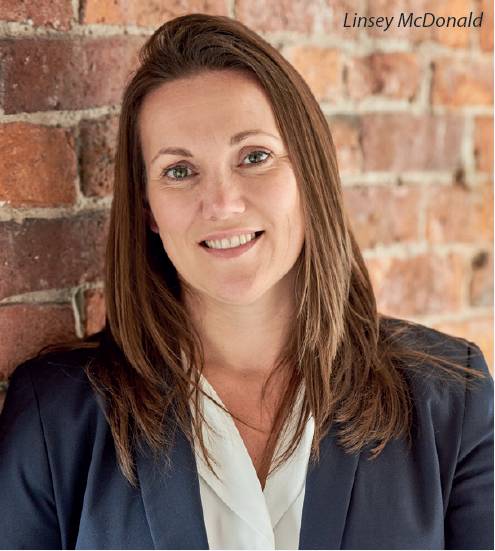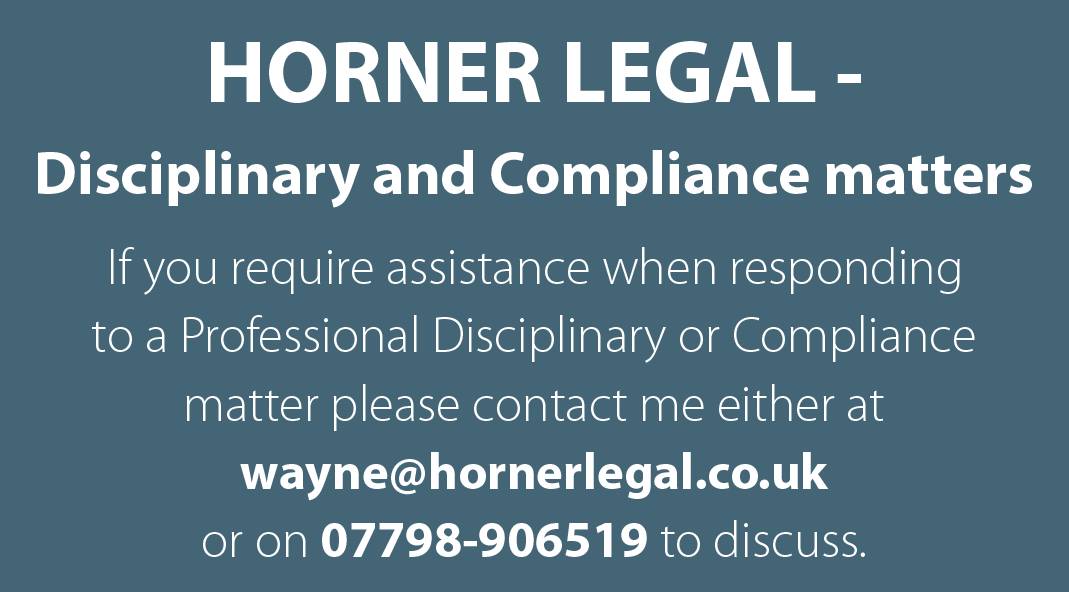myCILEx
Welcome to myCILEx
CILEx’s exclusive members' area
myCILEx provides you with information on the work CILEx is doing on behalf of its members
For the latest branch events in your area, visit: www.cilexbranches.org.uk

President’s message
ClLEx President Matthew Foster writes:
Since my last ‘President’s message’, I have been travelling up and down the country either representing members within our profession or attending events held by branches (see (2019) Autumn CILExJ p44).
In October, I attended the Somerset Branch Ball along with vice-president Craig Tickner. I presented an award to the secretary, Gerald Creech, in recognition of his long service to the branch. As I recall, he has been the secretary for nearly 50 years. Thanks to the Chair Robert Coppard, vice-chair Linda Creek and committee member Gayle Defries for making us feel so welcome and running an awesome evening (the band were fab!).
At the end of October, I had the honour of attending a CILEx Regulation Roundtable event in London. The purpose of the event was ‘Legal education for the future’. Very insightful talks presented by an array of speakers covering emotional competence, LawTech and technical competence in our profession. A changing landscape for the future, and one we should ignore at our own peril.

Mid-November found me in Bournemouth for the Branch Ball. I was joined by Craig Tickner, Phil Sherwood (the immediate past president) and Linda Ford, our CEO. The Bournemouth Branch Chair, Eloise Down, and her committee ran a very successful evening attended by over 160 guests, and Eloise even made sure that my speech was brief! A special thanks for making us all feel so welcome to a committee who are very much in the ascendency (pictured).
At the end of November, I attended the Lancashire Branch Christmas meal. How could I not attend after they won Branch of the Year at our National Awards Ceremony! I was made to feel very welcome, and that evening’s company was first-rate. Sarah Sharples, as branch Chair, is doing a good job, and she has a very reliable and close-knit committee. It was also good to catch up with Nick Williams again, who himself won the Visionary Leadership Award. Just a few minutes in Nick’s company and you know why this award was so deserved.
At the beginning of December, I met with District Judge Mathu Asokan, who is the Judicial Appointment Commission’s Commissioner linked to CILEx (see also page 28 of this issue). Existing barriers continue to prevent CILEx members from applying for more senior positions within the judiciary. This continues despite:
- insufficient numbers of lawyers from non-traditional backgrounds;
- the lack of diverse representation amongst judges; and
- the recruitment and retention crisis within the judiciary.
CILEx believes that our members provide an untapped solution to these problems. If you are interested in a judicial role, please take a look at the Pre-Application Judicial Education Programme, visit: https://tinyurl.com/qpcf7qv or the CILEx Judicial Development Programme: https://tinyurl.com/urxfuua
My final ‘official’ event of 2019 was to attend the unveiling of a new artwork at the Supreme Court.* CILEx friend and supporter Dana Denis-Smith, who is founder of the First 100 Years campaign, provided portraits with female lawyer representation, something not seen previously at the Supreme Court. To be part of this event was an honour, representing our membership nearly 75% of whom are female.
* Spark21 - a charity founded to celebrate, inform and inspire future generations of women in the profession - commissioned ‘Legacy 2019’ by Turnernominated artist Catherine Yass for and donated it to the Supreme Court.
----
National Apprenticeship Week 2020
 National Apprenticeship Week - from 3 to 9 February - has come around early this year.
National Apprenticeship Week - from 3 to 9 February - has come around early this year.
This year’s theme, ‘Look Beyond’, aims to encourage everyone to look beyond the outdated stereotypes surrounding apprenticeships and to celebrate the diversity of opportunity and value that they bring to the country today. To mark the event, CILEx and CILEx Law School will be attending a number of events nationwide and showcasing apprentices and their experiences on social media throughout the week.
---
Elizabeth Johnson in First 100 Years film
 Elizabeth Johnson, who in 2019 became the first female CILEx judge, features in a new film which premiered in December. In it, Elizabeth describes her professional life story to becoming the first female CILEx judge of the First-tier Tribunal.
Elizabeth Johnson, who in 2019 became the first female CILEx judge, features in a new film which premiered in December. In it, Elizabeth describes her professional life story to becoming the first female CILEx judge of the First-tier Tribunal.
‘First 100 Years: Elizabeth Johnson’ is one in a series of films produced by the First 100 Years campaign.
The films follow a different woman's journey into law and celebrate 100 years since the Sex Disqualification (Removal) Act 1919. Watch the film at: https://www.youtube.com/ watch?v=hXqdzjnozJM&feature=youtu.be
---
Family Law Awards 2019: Chartered Legal Executive of the Year
 LinseyMcDonald Linsey McDonaldLinsey McDonald of Switalskis Solicitors was named Family Law Chartered Legal Executive of the Year at a ceremony held in November in London.
LinseyMcDonald Linsey McDonaldLinsey McDonald of Switalskis Solicitors was named Family Law Chartered Legal Executive of the Year at a ceremony held in November in London.
Linsey, a FCILEx and an Associate at Switalskis office in Wakefield, was voted for by family law practitioners from a shortlist of nominees recognised as ‘having demonstrated excellence in their role’. Linsey, who has been with the firm since 2007, regularly deals with complex family matters which sometimes include domestic violence or challenging issues relating to arrangements for children and receives glowing testimonials from her clients for the care and support she provides.
The other choices on the shortlist for Family Law Chartered Legal Executive of the Year were Vanessa Gillbanks, the owner of Gillbanks Family Law and a consultant to Richard Nelson LLP and others; Philippa Morgan, head of family law at Lyons Davidson Solicitors; and Pam Sanghera a Chartered Legal Executive and director at Charles Strachan Solicitors.
---
LawCare and academics launch ‘fit for law’ to combat stress in the legal profession
Legal mental health and wellbeing charity LawCare and academics at the University of Sheffield and The Open University have just launched a new free, online resource on emotional competency and professional resilience for the legal community.*

The interactive resource, called Fit for Law, is part of an on-going project to promote psychologically and emotionally healthier ways of working within law and was developed based on evidence from focus groups with legal professionals across the UK and Ireland. The course takes between two and four hours in total to complete, but is broken down into smaller sections and includes videos from legal professionals discussing wellbeing issues as well as a range of interactive activities.
Elizabeth Rimmer, CEO of LawCare, said: ‘We know from our work in supporting lawyers for over 20 years how difficult it is for lawyers to admit they are struggling with the pressures of work, which often leads them to seek help when they are nearing crisis. We want to change this. Providing legal professionals with resources to enable them to understand and develop key emotional competencies such as emotional self-awareness, self-reflection and better strategies for emotional self-regulation will equip them more effectively for practice, enhance their wellbeing and potentially reduce levels of stress, anxiety and depression.’
The resources are available to everyone studying law or working in the legal profession in the UK and Ireland and could be used as CPD in some jurisdictions.
Meanwhile, LawCare’s 2019 figures reveal that the number of legal professionals contacting LawCare for emotional support continues to rise year on year, with 677 people seeking help in 2019.**
The charity received over 900 contacts in 2019 and saw an 8% rise in the number of people seeking help compared with 2018. The most common problems cited were stress (26%) and depression (12%). The number of lawyers contacting the charity about bullying continues to increase, from 47 callers in 2018 to 80 last year, now accounting for 12% of all contacts. Sixty-six per cent of those who contacted LawCare about this issue said that they were being bullied by a manager or superior.
The majority of callers to the helpline were women (67%). Fifty-three per cent of all callers were trainees/ pupils or had been qualified less than five years, and a further 5% were law students.
* Visit https://www.lawcare.org.uk/getinvolved/fit-for-law
** LawCare impact report 2019, available at: https://www.lawcare.org. uk
---
Are you a procrastinator?
Elizabeth Rimmer, CEO of LawCare, writes:
 Many of us will be familiar with procrastinating, ie, putting off or avoiding a task that needs to be done. It often seems as if the more we have to do, the more we procrastinate. There are two types of procrastination: active and passive.
Many of us will be familiar with procrastinating, ie, putting off or avoiding a task that needs to be done. It often seems as if the more we have to do, the more we procrastinate. There are two types of procrastination: active and passive.
Active procrastinators work better under pressure. They may choose to leave a task until it is right down to the wire because they thrive on adrenaline; however, passive procrastinators do so to the detriment of their performance.
According to a 2013 study, procrastination has nothing to do with poor time management or laziness; it occurs because of our inability to manage negative emotion surrounding a task, either focused on an aversion to the task itself or because of the feelings the task provokes, for example: ‘I can’t write this’; I don’t know enough about it’; ‘My boss will criticise me’. These thoughts then make us procrastinate further.
Procrastination is closely linked to perfectionism, low self-esteem or fear of failure or of moving forward in our lives. Often, procrastination is a red flag that we are finding it hard to cope; it can be a symptom of an underlying issue, such as stress, anxiety or depression. So, if you are a procrastinator, what can you do? Here are some tips:
Practice self-compassion
Be kind to yourself, and do not beat yourself up for procrastinating. Just accept that you do it. Try and write down some positive things about yourself, perhaps something nice a colleague said to you, or think about a previous time you completed a similar task and it went ok.
Make a list
Start by making a list of everything you have to do. Break big tasks into smaller manageable chunks so they do not feel overwhelming and set realistic deadlines for each task.
Block out time and remove distractions
Estimate how long certain tasks will take and block out time in your calendar to complete them. Work out what times of day suit you to complete certain tasks. For example, if you are a morning person, it might be better to draft a document first thing and to save admin tasks for the afternoon. If possible, turn off your phone and e-mail notifications during these times so you do not get distracted. You can also block your access to social media on your phone during certain times of day.
Make a start
It is easy to say: ‘Just do it’, but sometimes exactly what you need to do is just make a start on something. It does not have to be perfect.
Build-in rewards
It is important to build in rest time or reward yourself for meeting deadlines. Perhaps make a deal with yourself that you will get a coffee after you’ve completed a certain task, or you’ll go for a walk after clearing your inbox. Short breaks and time away from your desk improve your energy and focus.
Seek help
If your procrastination is starting to become unmanageable, call LawCare for support on 0800 279 6888 or visit: www.lawcare.org.uk
---
How to charge what you are worth and get it
Vanessa Ugatti, author of Amazon bestseller ‘True Worth’, who helps professionals generate more revenue ethically, without having to get more clients, by enabling them to charge what they are worth, writes:
The Christmas and New Year festivities are now well and truly over and hopefully you had an enjoyable time. Why not make 2020 the year of clear vision, ie, the time when you really start charging your true worth.
Are you really good at your job and yet struggle when it comes to charging your clients? Take heart, you are most definitely not alone!
So, what does that little (or not so little) voice in your head say to you just when you are about to discuss fees or bill your clients? Does it go along the lines of?
‘Oh, I can't possibly charge that, they'll never pay it’ or ‘Gosh that's a lot of money, I wouldn’t want to pay that. I’ll probably lose the client and I can’t afford to do that.’
Do you recognise any of these statements? If the answer is yes, that is not surprising because these are actual quotes from real people just like you!
Now please take a moment to reflect and see if this is true for you. Just recognising this is the first step in being able to transform it.
The problem is not the thoughts you have, it is that you believe them and then act on them. I know from my own personal experience how compelling that voice can be: it is fear-based, and fear can be an extremely powerful motivator. Fear creates a very uncomfortable feeling in your body, it is primeval and is all about self-preservation. In this case, though, it is an imaginary fear rather than a real one; after all, you’re not going to die.
However, your experience of it is identical to a real fear where your life is in danger! This then drives you to take action to protect yourself, in this case by undercharging, discounting or overservicing, even though, in the long run it is not actually beneficial either to you or the firm.
Clearly, there is a loss of revenue, and it probably means you are spending far too much time working to make up for the shortfall and you are possibly feeling overworked, stressed, tired and even resentful. Not a great place to be.
So, in the long-term, you can clearly see that this just does not really work for you or the firm. If you have reached this far, then I know you have recognised this behaviour in yourself and are probably itching to find out what you can do to change it.
So, here is a simple three-step process for you to apply immediately:
- Stop listening to that voice.
- Before discussing fees or billing, take a few deep breaths. Breathing deeply will reduce the fear which will also enable you to think with greater clarity.
- Find out what the piece of work is worth to the client. What’s the benefit to them? What problem will you be solving for them? This gets your mind focused on the value you’re providing rather than the price, so it will be easier to charge correctly.
Of course, you do have to make the effort to change; it is not necessarily easy, but it is so worthwhile. I wish you every success.
Whilst awareness improves steadily but surely, prevention and enforcement are still lacking, and CILEx is pleased to see the government's renewed focus on prevention in their most recent proposals to establish a proactive duty on employers to prevent incidents of workplace harassment.
 Responding to the Government Equalities Office consultation on Sexual Harassment in the Workplace, CILEx hopes that the reforms put forward shall see a shift from taking all reasonable steps to avoid sexual harassment as a defence following an incident, to a general requirement on employers to bolster their internal safeguarding mechanisms and prevent incidents from occurring at the outset.
Responding to the Government Equalities Office consultation on Sexual Harassment in the Workplace, CILEx hopes that the reforms put forward shall see a shift from taking all reasonable steps to avoid sexual harassment as a defence following an incident, to a general requirement on employers to bolster their internal safeguarding mechanisms and prevent incidents from occurring at the outset.
However, whilst CILEx awaits the detail behind these proposals, in the form of an expected statutory Code of Practice which is yet to come, it is important to recognise the shortcomings of our current systems in enforcing the rights of victims where incidents have occurred.
Weak enforcement powers of the European Human Rights Commission, combined with significant access to justice barriers in the employment tribunal, have left victims of sexual harassment unable to seek the redress that they deserve, the justice that they seek and the closure that they very much need.
CILEx members have bravely come forward to demonstrate that even amongst lawyers, who possess a greater understanding of our justice system, these barriers, such as the tribunal's three-month limitation period, have prevented them from enforcing their rights and protections, as the time limits provided fail to account for the emotional complexity and wider sensitivities of these cases.
This is not the first time that CILEx has called for reforms to the employment tribunal, having previously advocated for access to legal aid for litigants in the tribunal, access for workers in having their case heard, enhanced powers for the tribunal to enforce its own orders and extended limitation periods, alongside additional time provided in exceptional circumstances such as for pregnant women bringing a case post-partum.
CILEx calls for the proposal's new statutory duty to be supplemented with these wider reforms to our tribunals and to be complemented by non-legislative solutions to address the cultural and societal barriers that have contributed to an ongoing prevalence of workplace harassment.
As one CILEx member stated: “Laws do not impact culture without enforcement or strong messages. Cultures where sexual behaviour in the workplace is accepted as banter or the norm, dismiss legislation and minimise its impact making those subject to the behaviour feel the laws are not worth pursuing. Peer pressure in these environments is rife, for example even where a woman or man considers action there is pressure to not take such behaviours so seriously by others.”
- Government Equalities Office Consultation – “Sexual Harassment in the Workplace'. A Response by The Chartered Institute of Legal Executives, October 2019, available at: https://tinyurl.com/u4fu3uu
JOIN A SPECIALIST REFERENCE GROUP
CILEx operates a series of virtual specialist reference groups to assist us in representing our members’ interests. These groups are free for members to join and cover both protected characteristics and various practice areas.
CILEx members of all grades are invited to join these groups applicable to their profile or areas of specialism. Through them, members shall receive monthly newsletters containing relevant updates and information on policy and practice, as well as the opportunity to provide us with your thoughts and opinions directly, via email or online surveys on specific matters. These will then be utilised to help develop CILEx’s policy positions and knowledge base, and allow us to have a greater understanding of the needs of our members.
You can find details of active and prospective reference groups at: https://tinyurl.com/vt5noeg along with information about how to join.
---
The citation for this Journal is (2019) Winter CILExJ. © CILEx 2019 ISSN 2050-0580. The 2019 subscription rate for the C I L E x J o u r n a l for non-members of the Chartered Institute is £35 per annum UK; from £58 overseas. Single copies £8.95 including postage. The C I L E x J o u r n a l adopts an independent and inquiring approach towards the law and the legal profession. It is published for the benefit of members of The Chartered Institute of Legal Executives and therefore aims to keep them properly informed of developments in the law and legal practice. As part of this objective, C I L E x J o u r n a l will act as an authoritative source of information on Chartered Institute activities and policies. From time to time C I L E x J o u r n a l could cover controversial issues. The editor shall have the final decision on matters of editorial policy or content, but always strives to preserve and to enhance the good name of the Chartered Institute and its members. The views expressed should be taken as those of the author only unless it is specifically indicated that the Chartered Institute or C I L E x J o u r n a l has given its endorsement. Neither C I L E x J o u r n a l nor the Chartered Institute of Legal Executives accept liability to any party for any error, omission or misstatement by any contributor in any material published herein.







